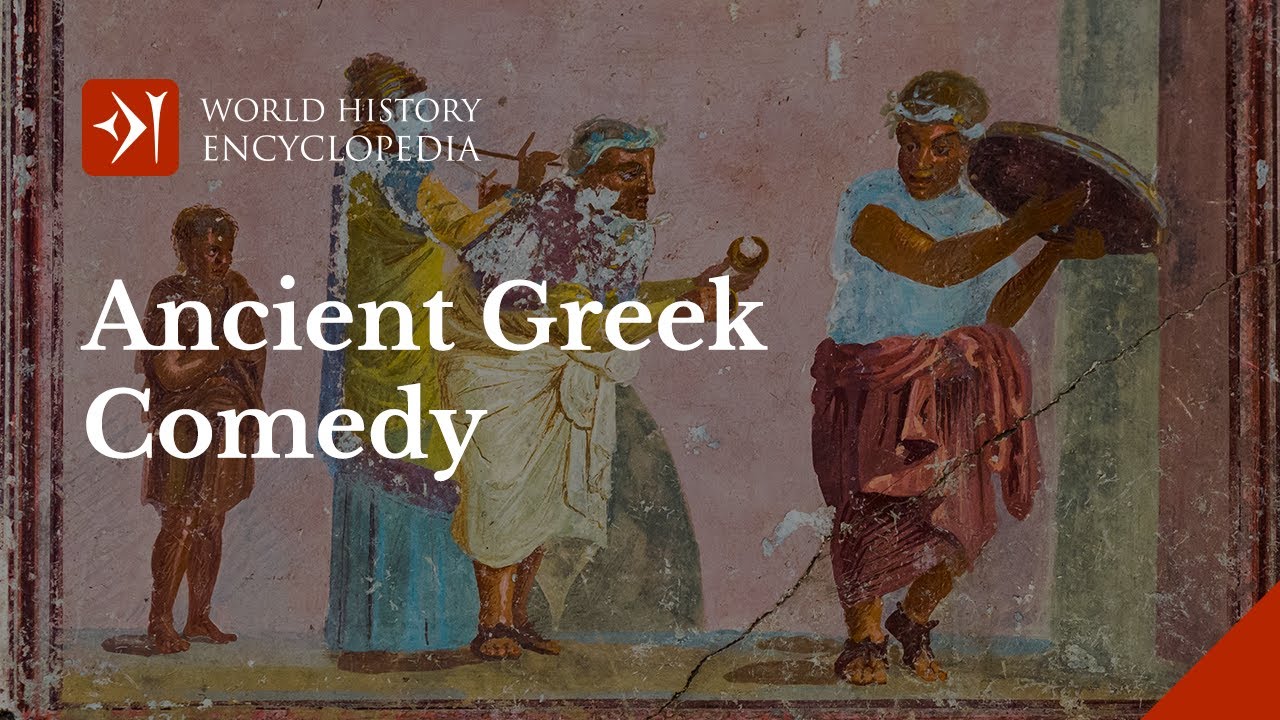Comedy, like tragedy, also began at the festivals of Dionysus. Aristophanes (c. 450-c. 385 B.c.) has left eleven complete plays and parts of a twelfth. By making his audience laugh, he hoped to teach them a lesson. A thorough-going conservative, he was suspicious of all innovation. In The Frogs, for instance, he brought onto the stage actors playing the parts of the two tragedians, Aeschylus and Euripides. The god Dionysus himself solemnly weighed verses from their plays on a giant pair of scales; the solemn, didactic, and old-fashioned Aeschylus outweighed the innovating, skeptical, volatile, modern Euripides every time.
In The Clouds Aristophanes ridiculed the philosopher Socrates, whom he showed in his “think shop,- dangling from the ceiling in a basket so that he could “voyage in air and contemplate the sun.” Aristophanes meant to call attention to the dangers offered to Athenian youth by the Sophists.
Aristophanes opposed the Peloponnesian War, not because he was a pacifist but because he thought it unnecessary. In Lysistrata the women denied sex to their husbands until the men made peace, and in other plays Aristophanes denounced the Athenian politicians, including Pericles himself, for going to war. In The Birds the leading characters set off to found a Birdville (Cloudcuckoo-land) to get away from war.
In one of his later plays, the women took over the state and proposed to share all the men among them, putting prostitutes out of business; in another, Poverty and Wealth appeared in person and argued their cases. These later plays provided a transition to the New Comedy of the fourth century – gentler, more domestic, more respectable. We have portions of several New Comedies by Menander (c. 342-281 B.C.) and one full text, Misanthrope, published for the first time only in 1958.
Drama was, of course, only one form that Greek poetic genius took. From the earliest days, the Greeks were also the masters of lyric poetry. Among the most celebrated are poems of love by Sappho (fl c. 610-c. 580), of war by Spartan poets in the very early days, and of triumph in the Olympic games by Pindar (c. 522-438).

